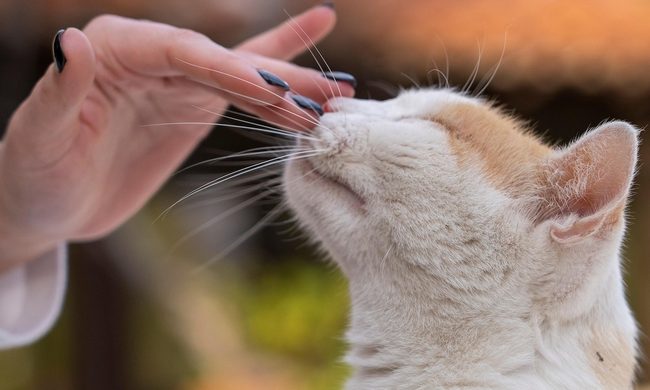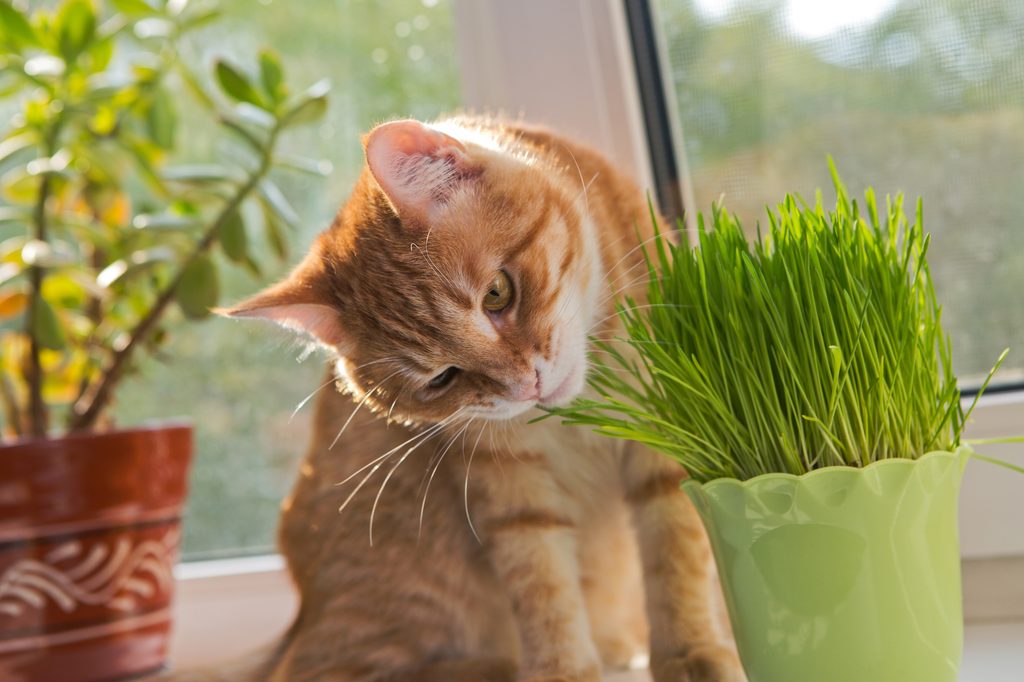
Many cats go absolutely crazy for catnip, sometimes called a kitty drug. While catnip isn’t a drug in the traditional sense, it can prompt some pretty crazy behavior from your cat. Many cats get super-excited and start racing around the house or playing crazily. Others tend to go into a very relaxed, almost sedated state.
While these behaviors might prompt us to think that our cats are high, that’s not exactly what’s going on. Understanding the question: “Why do cats like catnip?” and the effect that it has on your cat can help you to see just what’s going on when you give your cat his favorite catnip toy.
Do cats get high on catnip?
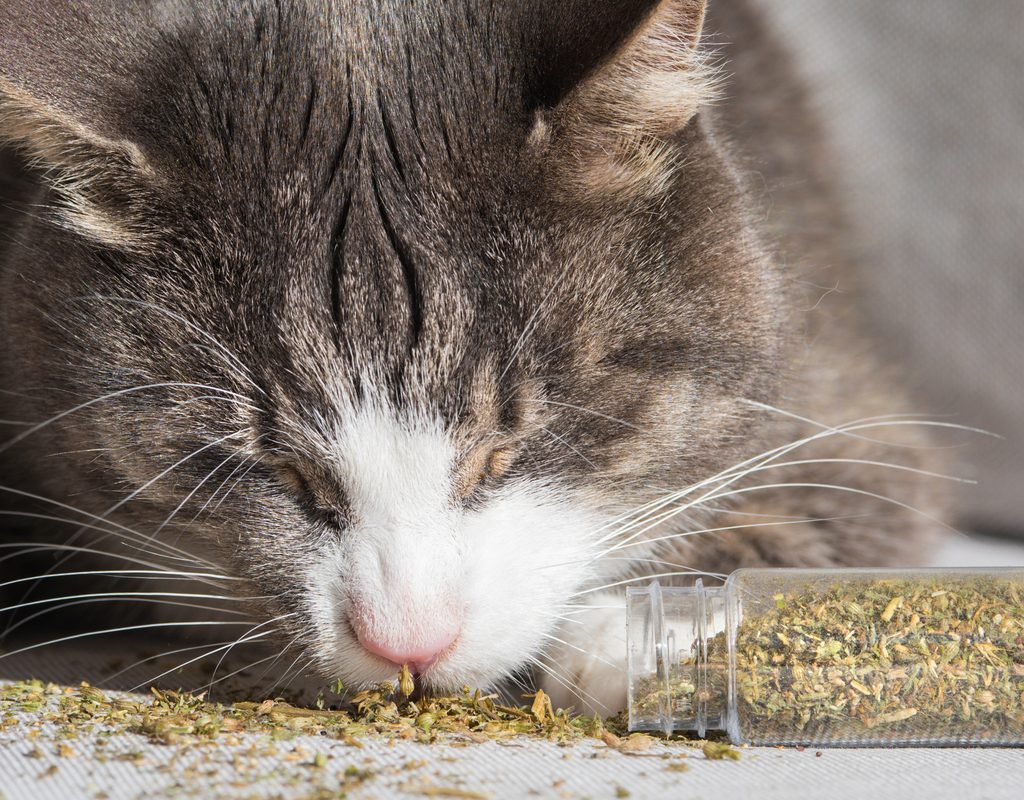
So, why are cats attracted to catnip and are they really getting high? A study published in 2017 offers some insight.
According to the study, catnip affects your cat’s opioid system. Catnip contains nepetalactone, which prompts cells in your cat’s airway to produce endorphins. These endorphins give your cat a sort of “high,” but it’s likely not the hallucination-type high that we think of. Instead, these endorphins make your cat feel good and happy.
The study found that there isn’t much of a difference between whether your cat just rolls around in the catnip or actually eats the leaves. Eating the leaves might be your cat’s attempt to get the nepetalactone to release so he can enjoy the effects of it.
When your cat does get to experience catnip, you’ll start to see the effects pretty quickly. PetMD reports that catnip starts to affect your cat within just a few seconds. Those effects are short-lived, though, lasting only around 10 minutes. After your cat has experienced catnip, it will take another one or two hours before he’ll be able to experience a catnip high again.
Can cats get addicted to or ingest too much catnip?
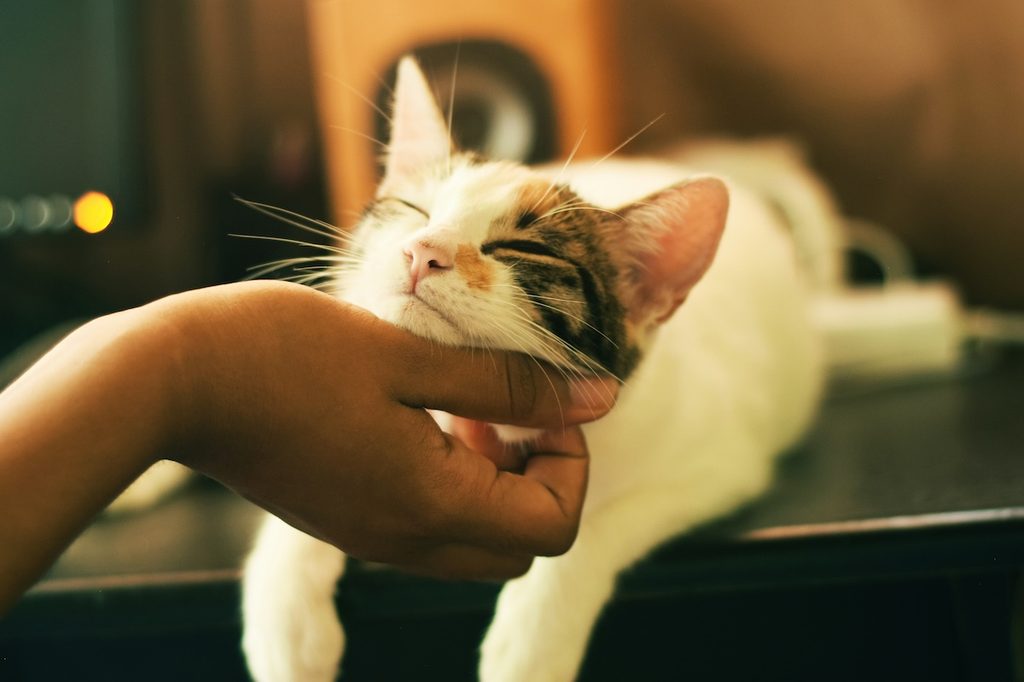
The good news is that catnip is pretty low-risk. According to PetMD, cats can’t experience opioid withdrawal, so even if you give your cat catnip every day, he won’t become addicted to it. It is possible for your cat to develop a mild tolerance with frequent exposure to catnip, so keep this as a special treat if you want your cat to be able to enjoy the full effects.
Cats also can’t overdose on catnip. If they ingest a lot of it, they might experience some digestive upset, including vomiting and diarrhea, but this is rare.
Do cats enjoy being high on catnip?
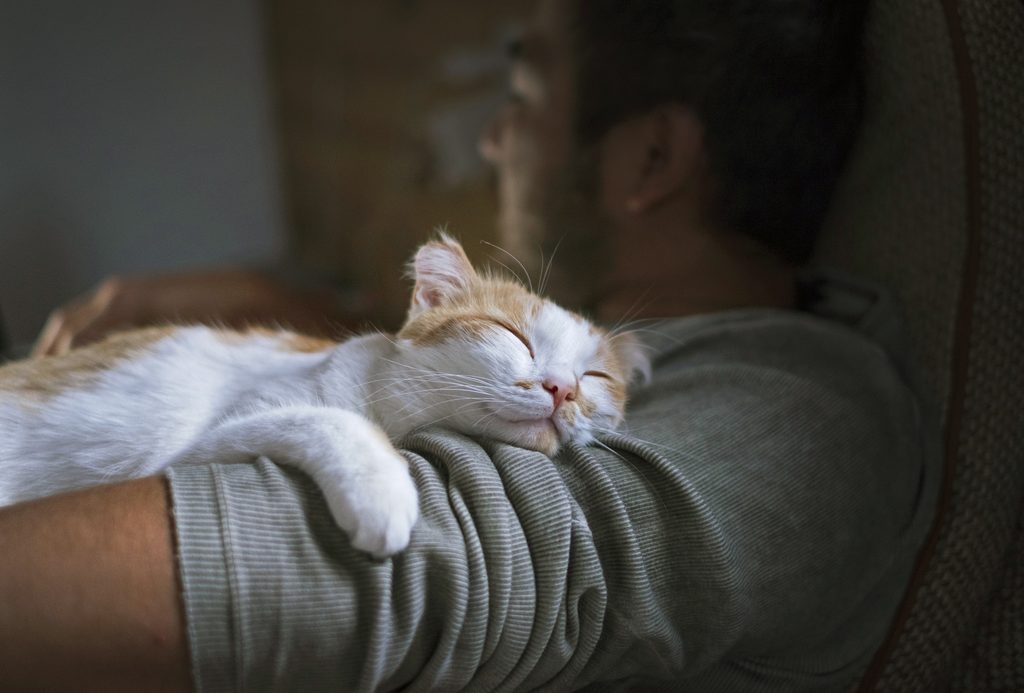
Almost certainly, although nearly 50% of adult felines don’t react to catnip at all. So you might wind up with a kitty who pays catnip absolutely no mind. On the flip side, if your little buddy positively revels in it, let her enjoy the “high.”
While the experience isn’t analogous to a human taking substances, it’s likely enjoyable for her none the less. Also, it doesn’t affect them the same way, but your dog might like to do a bit of catnip. And you can try the plant too though you should be careful not to overdo it for fear of upsetting your stomach.
How to make the most of catnip
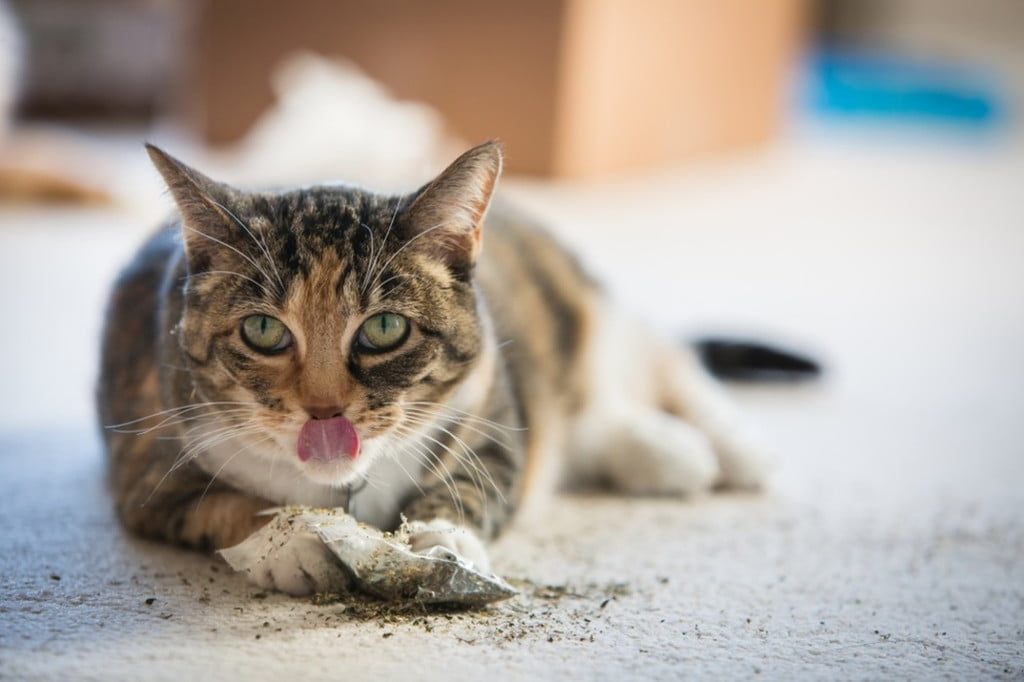
If your cat loves catnip, you can help him to get his catnip fix in many ways. Catnip is available in multiple forms, including dried leaves, sprays, and even the entire catnip plant. You might want to explore all these options to determine which your cat responds to best.
Catnip plants can be ideal because you can grow them in your home, ensuring you always have a fresh supply of catnip at the ready. You’ll need to make sure you can keep the plants away from your cat, though, or he’ll probably roll on them, eat them, or crush them because they smell so good.
You can also explore a variety of toys that are filled with catnip. There’s no shortage of these toys, but with time, the catnip potency can fade and your cat may lose interest in the toys. Because of this, it’s best to choose toys that you can open up and refill with fresh catnip.
Catnip does age, so you’ll want to carefully store the supply that you have. You can keep catnip in a cool, dry space, like a drawer, and it will keep for months. If you buy a large supply and want to keep it fresh long-term, then freeze whatever you’re not using to help preserve it.
Our conclusion on catnip
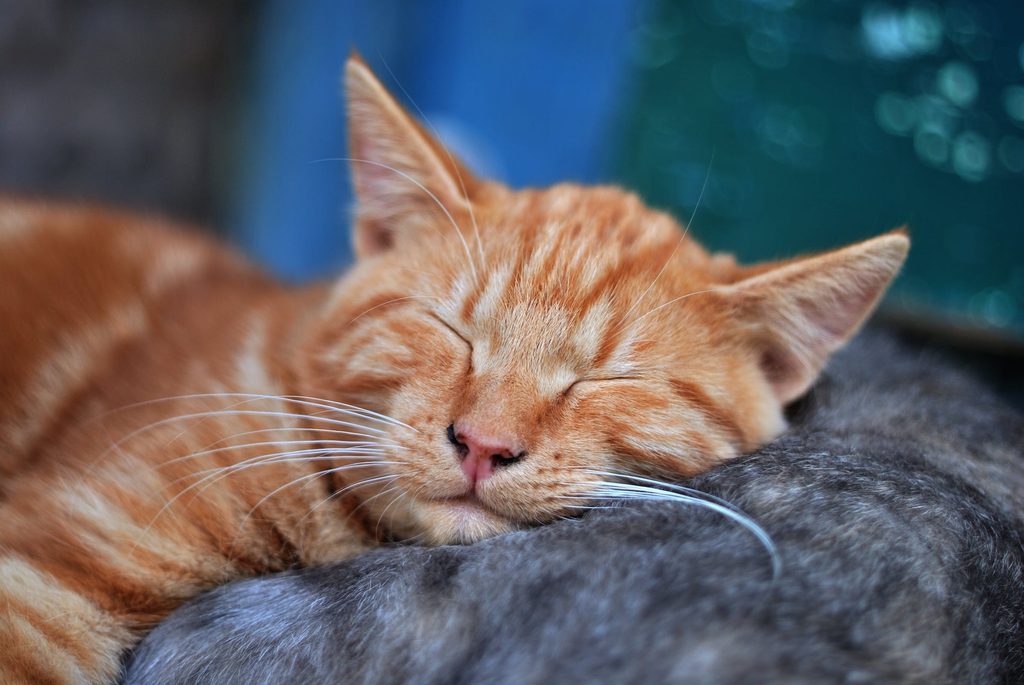
You may find that your cat absolutely loves catnip, and giving him catnip can be a nice way to pamper him. Keep in mind that some cats get very animated and excited during their catnip time, so be sure to keep yourself and any kids in your home safe.
Put the catnip down and then back up, letting your cat play at a safe distance. If you have multiple cats in the home, put down multiple piles of catnip so that each cat can get his fix without fighting with the others. But what’s most important is to sit back and watch as your cat has an absolutely fabulous time.


